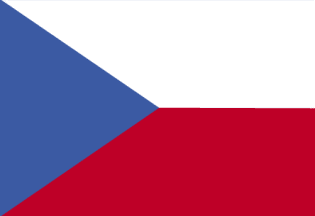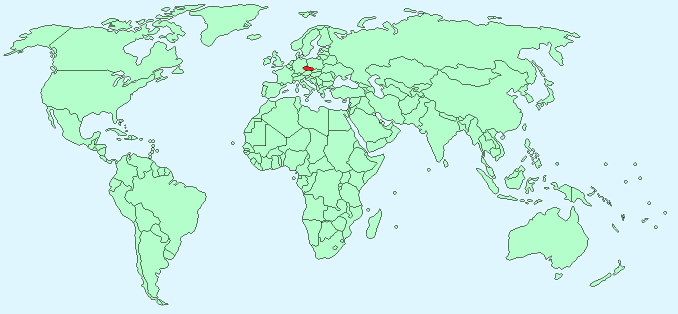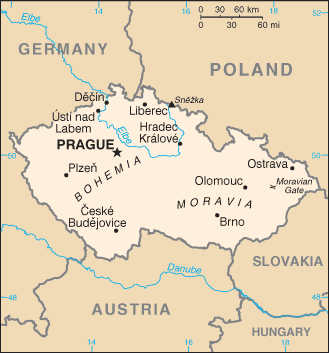Czech Republic


Continent – Europe
Region – Central Europe
Size – 78,866 km²
Geography – rolling plains and hills
Language – Czech, Slovak
Religion – 27% Roman Catholic, 2% Protestant, 3% other, 68% none
Monetary Unit – Czech Koruna
Natural Resources – hard coal, soft coal, kaolin, clay, graphite, timber
Agriculture – wheat, potatoes, sugar beets, hops, fruit; pigs, poultry
Industry – metallurgy, machinery and equipment, motor vehicles, glass, armaments

Neighbouring Countries – Germany, Poland, Slovakia, Austria
Population – 10,627,448 (2014 estimate)
Population Growth Rate – -0.07%
Average Life Expectancy – 76.4
Capital City – Prague (1,212,097 – 2007 estimate)
Highest Mountain – Snezka (1602m)
Longest River – Elbe (115 km)
Climate – temperate, cool summers 13°C to 23°C and cold winters -5°C to 12°C
Yearly Rainfall – 40 cm (approx)
Plant Life – oak, fir, spruce, linden, grasses, wild flowers
Animal Life – fox, hare, hart, rabbit, wild pig, marmot, otter, marten, mink, wild boars, red deer
Aquatic Life – carp, pike, trout
Bird Life – pheasant, partridge, ducks, geese, vultures, herons
Harvard Reference for this page:
Heather Y Wheeler. (2015). Czech Republic. Available: https://www.naturalhistoryonthenet.com/Facts_Figures/Country_Facts/czechrepublic.htm. Last accessed Monday, July 18, 2016
Facts and Figures Pages
